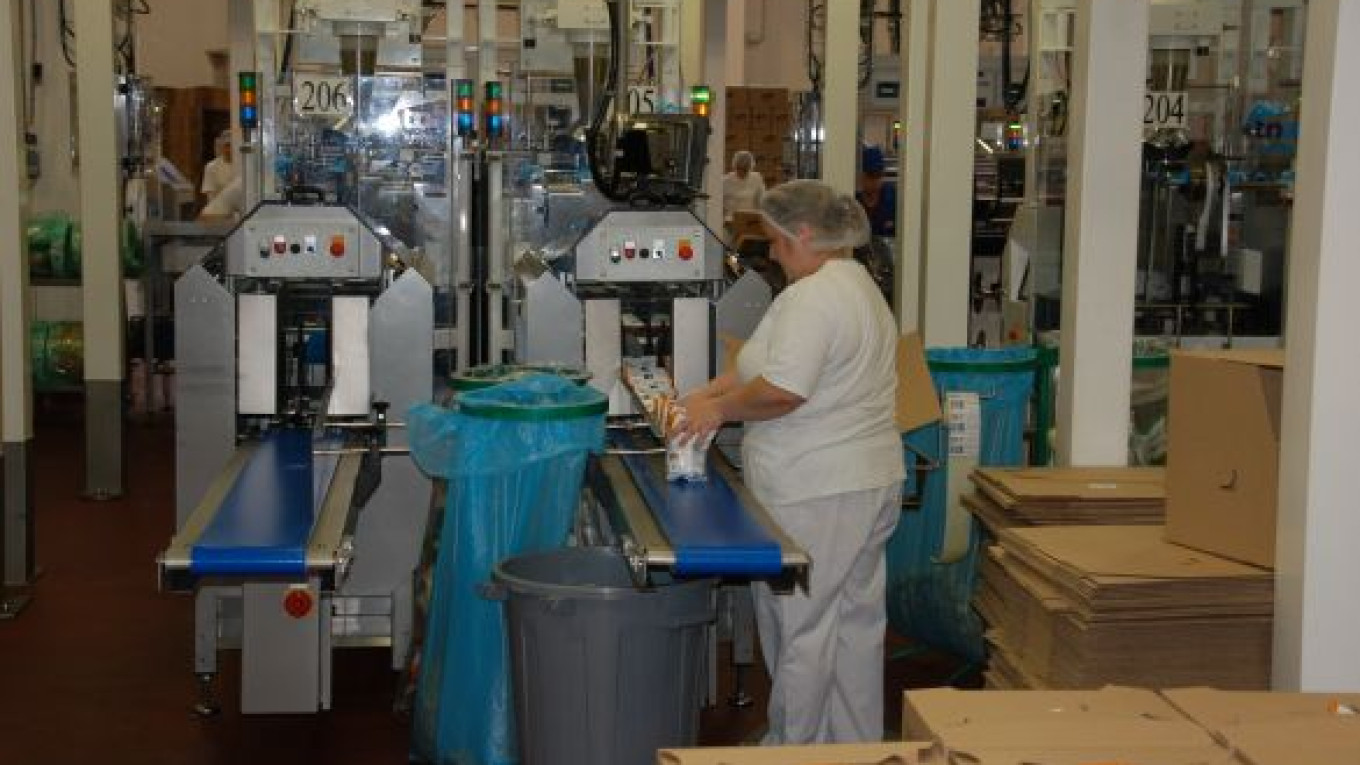PepsiCo is setting up a $250 million ecosystem of farming and production in the southern city of Azov, opening a new potato chip plant and laying the cornerstone for a beverage plant in close cooperation with Rostov regional authorities.
Ramon Laguarta, president of PepsiCo Eastern Europe and Russia, said at the ribbon cutting Wednesday that the company chose the site with the idea of building the two plants next to each other.
The chip factory was built at a cost of $110 million and will produce potato chips under the Frito Lay brand name.
PepsiCo will also give a boost to local agriculture. Laguarta said the company has agreements with six large farms in Rostov and the neighboring Krasnodar region.
The farms are provided with seed, financing, equipment and consulting to improve efficiency, Laguarta said. He said the farms that provide potatoes to the company’s other chip plant, in Kashira, outside Moscow, doubled their productivity in five years thanks to PepsiCo’s attention.
The Azov beverage plant is expected to open at the end of next year, after a $140 million investment. It will reach its planned capacity of 500 million liters per year of soft drinks, water and iced tea by spring 2013.
Laguarta praised the regional administration for its cooperative spirit.
He said construction costs would be entirely covered by PepsiCo, while the regional administration worked with the company to create the necessary support infrastructure — expanding and improving local roads, rail links and utilities.
Rostov Governor Vasily Golubev said the region spent $1.67 million on improvements.
Cooperation “is what brought us here in the first place,” PepsiCo Russia general manager Paul Kiesler told The Moscow Times. “They continue to invest with us and keep us here.”
The PepsiCo plants in Azov will pay an average salary of $930 a month to its workers, the governor said.
“That’s not bad for our region,” Golubev said.
He said the regional administration is working with other foreign companies, including French concrete producer Lafarge, to make investment more attractive.
The chip plant will supply markets in southern Russia, Ukraine, Kazakhstan, the Caucasus and the Russian Far East, while the plant in Kashira supplies the other regions of the country.
The two Azov PepsiCo plants will eventually employ 1,000 people. Azov, located 16 kilometers from Rostov-on-Don, has a population of about 80,000.
The Azov plant is 30 percent more efficient than the Kashira facility, Laguarta noted, using fewer resources, recycling water used in production and producing less waste.
The company’s long-term plans, Laguarta said, include the construction of a large warehouse in the Rostov region and the opening of another snack plant in Russia. He thought the new plant would be needed by 2015.
Kiesler said 85 percent of the potatoes the company uses — 200,000 tons at present — are grown locally. Imports from Central Europe and the Middle East supply production between harvests in Russia. This year imports have been higher because weather conditions reduced the quality of domestic potatoes.
Developing agriculture is a gradual process, Kiesler said. “It’s not like building a factory.”
He said the company wants to extend its assistance programs to farmers who supply fruit and vegetables for Lebedyansky juices, which PepsiCo acquired in 2008.
PepsiCo announced plans last week to acquire a controlling share in Russian juice and dairy producer Wimm-Bill-Dann, which will make it the country’s largest food and beverage producer.
PepsiCo Russia Snacks general manager Marc Schroeder said in an interview that the company has a 30 percent market share.
“We are the market leader in Russian snacks, although it is still a fragmented market,” he said.
Schroeder said local taste preferences are carefully considered. Among the company’s products that are exclusive to the domestic market are crab-, dill pickle- and barbecue beef-flavored potato chips.
It also sells a dried fish snack and hard brown bread cubes resembling traditional sukhariki. Sold under the brand name Khrus (Crunch) Team, the bread snacks come in flavors that include mushroom, tomato and sour cream.
A Message from The Moscow Times:
Dear readers,
We are facing unprecedented challenges. Russia's Prosecutor General's Office has designated The Moscow Times as an "undesirable" organization, criminalizing our work and putting our staff at risk of prosecution. This follows our earlier unjust labeling as a "foreign agent."
These actions are direct attempts to silence independent journalism in Russia. The authorities claim our work "discredits the decisions of the Russian leadership." We see things differently: we strive to provide accurate, unbiased reporting on Russia.
We, the journalists of The Moscow Times, refuse to be silenced. But to continue our work, we need your help.
Your support, no matter how small, makes a world of difference. If you can, please support us monthly starting from just $2. It's quick to set up, and every contribution makes a significant impact.
By supporting The Moscow Times, you're defending open, independent journalism in the face of repression. Thank you for standing with us.
Remind me later.


